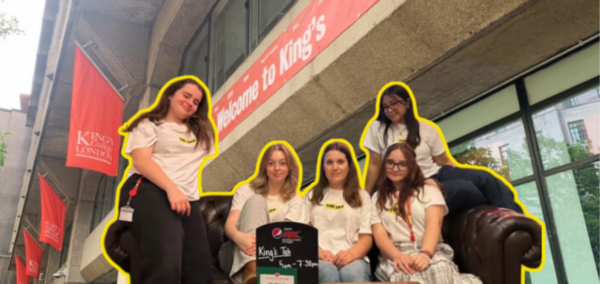
Leeds Medical School accused of silencing pro-Palestinian students in controversial email
The University and College Union has called on Leeds University to uphold students’ rights to free expression and condemned attempts to ‘characterise expressions of solidarity with Palestinians as antisemitic’
Leeds Medical School has been accused of silencing pro-Palestinian students in an email sent to fourth-year medics.
The email, from the deputy deans for the faculty of medicine and health, implied that wearing pro-Palestinian clothing could be considered antisemitic.
It referenced an incident last term when a student wore clothing that displayed a map of Israel covered with a Palestinian flag during a teaching session.
A Jewish consultant leading the session perceived the image to be antisemitic and felt the clothing was “intimidating, hostile and offensive”.
The university’s message warned students that while they are free to hold personal views, they must maintain a high standard of behaviour at all times, and linked guidance from the General Medical Council on how to achieve good medical practice.
It added that expressing views in a way that can negatively impact the experiences of others is “not acceptable.”

The alleged item of clothing via Reddit
The email said: “We know that the ongoing situation in Israel and Gaza continues to cause much distress, but please remember that expressing your view – including via clothing – in a way that can negatively impact on the experience of other School members – staff or students – is not acceptable.”
It continued: “We are proud to be a diverse, multi-faith, inclusive medical school: for us to thrive means all students and staff need to feel they can study and work in safety.”
The Leeds branch of the University and College Union (UCU) has condemned the email’s framing, and an open letter addressing the administration, which has received nearly 2,400 signatures, many from students, has also raised concerns surrounding the email’s implications.
Most Read
On 7th February, Leeds UCU said in an open statement: “We reiterate our call on the University to uphold our students’ right to freedom of expression, and we condemn all attempts to characterise expressions of solidarity with Palestinians as antisemitic.
“We condemn antisemitism in all its forms and note that many members of the Jewish community on campus and more broadly feel that solidarity with Palestinians is not just in line with their Jewish values but a moral imperative.
“We urge the University to protect the freedom of expression for staff and students on campus.”

In the open letter addressing the school’s administration, students argue the framing of the email risks unfairly conflating Palestinian advocacy with antisemitism.
They emphasise the importance of “freedom of expression not being unjustly curtailed or conflated with hostility or discrimination.”
The letter continues: “We as students have the right to express our beliefs, including through our clothing, as long as it does not promote hatred or incite violence”
Students further claim that “the map and flag in question represent a widely recognised symbol of Palestinian identity” and to link them to antisemitism “risks the suppression of the Palestinian identity.”
They warn that such messaging could create a “hostile and unsafe environment” for those who support the Palestinian cause.
Alleging the email contradicts the university’s commitment to inclusivity, the letter notes: “Inclusivity means fostering a space where differing views and identities are respected, not suppressing them out of fear of offending others.
“Supporting peace in Palestine does not make you unprofessional or antisemitic.”
Given the severity of the ongoing situation in Palestine, students expressed disappointment at the school’s handling of the issue: “One would have expected this matter to be approached with greater sensitivity and caution.”
As future medical professionals, the students claim it is their ethical duty to support marginalised and oppressed groups, citing that many feel a strong moral responsibility to advocate for the Palestinian people.
Calling for a change in approach, the complainants “respectfully urge” the administration to reconsider how these matters are addressed in the future: “Creating a culture of inclusivity requires engaging with differing perspectives openly and respectfully, rather than preemptively silencing them.
“A fair, nuanced, and supportive approach will help foster the unity and understanding that we all strive for.”
The University of Leeds has not yet responded to requests for comment.
Featured image (before edits) via Chemical Engineer on Creative Commons





















